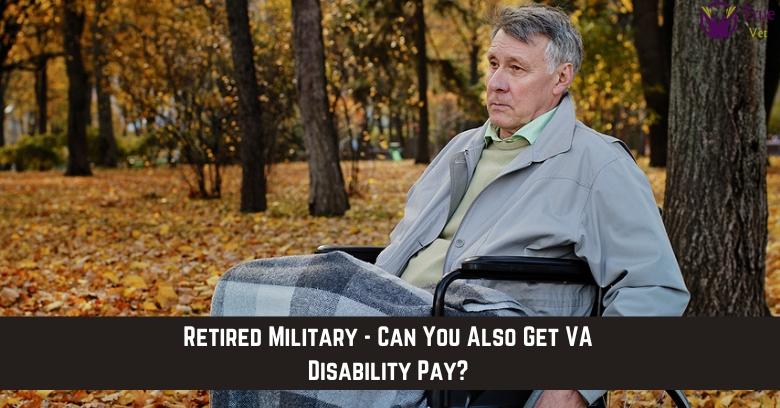Arizona Veteran Financial Benefits
-
State Tax Exemption of $3500 on Retired Military Pay: Retired Members of the Armed Forces in receipt of Retired pay are eligible for the exemption. Benefits, annuities, and pensions in an amount totaling not more than $3,500 received from one or more of the following shall be exempt from Arizona gross income:
-
The United States government service retirement and disability fund
-
Retired or retainer pay of the uniformed services of the United States
-
the United States foreign service retirement and disability system
-
any other retirement system or plan established by federal law
-
-
Resident Military Active Duty Pay is Tax-Free: Beginning in 2006, Arizona does not tax active duty military pay. Members of the U.S. Armed Forces may subtract the amount of pay received for active-duty military service, including pay received for active service in a combat zone or an area given the treatment of a combat zone, to the extent included in Arizona gross income and subject to Arizona tax.
-
State Taxes on U.S. Department of Veterans Affairs Disability Dependency and Indemnity Compensation: Dependency and Indemnity Compensation (DIC) is a tax-free monetary benefit paid to eligible survivors of military service members who died in the line of duty or eligible survivors of Veterans whose death resulted from a service-related injury or disease.
-
Property Tax: Widows, widowers, and disabled military person’s property tax may be waived in certain cases (please contact your County Assessor Office for eligibility)
-
Arizona Property Tax Exemptions for Surviving Spouses and Disabled Persons: There is no state property tax. Property tax is administered by county assessors. The property of Surviving Spouses and disabled persons who are residents of the state of Arizona may be exempt from taxation to the extent allowed by law. The assessed value of the property may be reduced by $3,965 or more with a corresponding reduction in tax. Legislative changes, effective August 2005, have indexed the amount to the GDP indicator. Valuations for the current tax year are available from the county assessor after January 1st of each year. The exemption is applied to the real estate first, then to a mobile home or an automobile.
Sales Tax:
-
Statewide: 5.6%
-
Counties: can levy a sales tax of no more than 5.6%
-
Current average sales tax (with local taxes included): 7.76%
RECREATION
Vehicle License Tax and Registration Fees: Veterans with a 100% service-connected disability rating do not have to pay license tax or registration fees for personally owned vehicles. This also includes any vehicle acquired by the Veteran through financial aid from the VA. Un-remarried spouses are also eligible for this exemption.
Hunting and Fishing Licenses: Veterans with a 100% disability rating and who have been an Arizona resident for at least 12 months can obtain a hunting and fishing combo license for free. Active duty members can get a hunting and fishing license at the residential rate.
Arizona State Parks: Arizona Veterans with a 100% disability rating can obtain a “Disabled Veterans Annual Day Use Pass.” This pass allows Veterans access to all twenty-seven state parks.
EDUCATION PROGRAMS
Arizona In-state Tuition Status for Veterans: Eligible Veterans and dependents can be granted immediate residency, thereby receiving in-state tuition rates, by:
-
Residing in the state
-
Completing at least one of the following:
-
Registering to vote in Arizona
-
Getting an Arizona driver license
-
Arizona motor vehicle registration
-
Employment history in Arizona
-
Transfer of major banking services to Arizona
-
Change of permanent address on all pertinent records
-
Other materials of whatever kind or source relevant to domicile or residency status
-
Tuition and Fees Deferred Payment at Arizona State Supported School: Any person who is eligible for and has applied for benefits for education available to Veterans of the United States Armed Forces under federal law may apply for a deferment of payment of tuition, fees and required books and materials for a period not to exceed one hundred twenty days. The community college, college or university shall defer payment for that period on receipt of a signed and acknowledged promissory note for the amount of the tuition, fees and required books and materials, with no interest charge, that is due and payable at the end of the deferral period. This deferment is available during any registration in which a Veteran is awaiting education benefits available to Veterans of the United States Armed Forces under federal law. An Arizona Veteran or their dependent is eligible for the tuition waiver while awaiting federal education benefits.
Tuition Waivers for Arizona Public Universities for Certain Veterans and Dependents: A tuition waiver scholarship shall be provided after verification from an appropriate authority, so long as they otherwise meet the qualifications for admission to an Arizona Public University.
Arizona Interstate Compact on Educational Opportunity for Military Children: It is the purpose of this compact to remove barriers to educational success imposed on children of military families because of frequent moves and deployment of their parents by:
-
Facilitating the timely enrollment of children of military families and ensuring that they are not placed at a disadvantage due to difficulty in the transfer of educational records from the previous school district or variations in entrance or age requirements
-
Facilitating the student placement process through which children of military families are not disadvantaged by variations in attendance requirements, scheduling, sequencing, grading, course content or assessment
-
Facilitating the qualification and eligibility for enrollment, educational programs, and participation in extracurricular academic, athletic and social activities
-
Facilitating the on-time graduation of children of military families
-
Providing for the promulgation and enforcement of administrative rules implementing the provisions of this compact
-
Providing for the uniform collection and sharing of information between and among member states, schools and military Families under this compact
-
Promoting coordination between this compact and other compacts affecting military children
-
Promoting flexibility and cooperation between the educational system, parents and the student in order to achieve educational success for the student
HOUSING: THE FOLLOWING ARE THE SITES FOR VETERANS HOMES
Arizona State Veterans Home at Phoenix
Arizona State Veterans Home at Tucson
ELIGIBILITY FOR ADMISSION:
-
Veterans must have an honorable discharge
-
Must be certified by a doctor as needing skilled nursing care
-
Spouses may also be admitted
EMPLOYMENT AND JOB TRAINING: VETERAN’S PREFERENCE
Wartime Veterans have a preference in employment with state agencies or offices, as do widows and children of those killed on active duty. State agencies must practice Veterans’ preference until they have reached 40% Veteran employment.
Uniformed Services Employment and Reemployment Rights Act: Uniformed Services Employment and Reemployment Rights Act (USERRA) protect civilian job rights and benefits for Veterans and members of Reserve components. USERRA also makes major improvements in protecting service member rights and benefits by clarifying the law, improving enforcement mechanisms, and adding Federal Government employees to those employees already eligible to receive the Department of Labor assistance in processing claims.
Veterans’ Priority of Service at Arizona Department of Economic Security (DES) Offices: Priority of Service is the right of an eligible “Covered Person” to be given priority of service over an eligible non-covered person for the receipt of employment, training and placement services, notwithstanding other provisions of the law. Covered persons take precedence over non-covered persons in obtaining services and shall receive access to services and resources earlier in time than a non-covered person. If services or resources are limited, the covered person receives access instead of or before the non-covered person.
BURIALS AND MEMORIALS
Please note that your preference regarding burial in a national cemetery and use of a headstone provided by VA should be documented and kept with your paperwork and medical records. Any Veteran who has an other-than-dishonorable discharge is eligible for burial. Spouses and certain dependents are also eligible for burial. There is no charge for interment for Veterans, and a one-time nominal fee for eligible spouses and dependents.
National Cemeteries include:
Phoenix: National Memorial Cemetery of Arizona
Prescott: Prescott National Cemetery
ARIZONA VA BENEFIT RESOURCES
Arizona provides Veterans with a District Benefits Office and a Regional Benefits Office, along with VA Medical Centers.
ARIZONA VA DISTRICT BENEFITS OFFICE
-
Phoenix: Pacific District
ARIZONA VA REGIONAL BENEFITS OFFICE
-
Phoenix: Phoenix Regional Benefit Office
ARIZONA VA MEDICAL CENTERS
-
Phoenix: Phoenix VA Health Care System
-
Prescott: Northern Arizona VA Health Care System
Important information for Arizona Veteran Benefits:
For Veterans applying for VA benefits for the first time, you must submit a copy of your DD 214 (discharge paperwork). This will provide your discharge status, along with your full name, social security number, branch of service, and dates for which you served. Honorable and general discharges qualify a Veteran for most VA benefits.
You should always keep your paperwork, along with your medical records, in a safe place where you and your family can have access to them. It is imperative to have it in a location where it cannot be destroyed or tampered with, which includes a safe.
Your eligibility for most VA benefits is based upon discharge from active military service under other than dishonorable conditions. Active service means full-time service as a member of the Army, Navy, Air Force, Marine Corps, Coast Guard, or as a commissioned officer of the Public Health Service, the Environmental Services Administration or the National Oceanic and Atmospheric Administration.
Any Veteran discharged from the military under the conditions of “Dishonorable” due to bad conduct discharges issued by general courts-martial may bar VA benefits. Veterans in prison and parolees may be eligible for certain VA benefits. VA regional offices can clarify the eligibility of prisoners, parolees, and individuals with multiple discharges issued under differing conditions.







